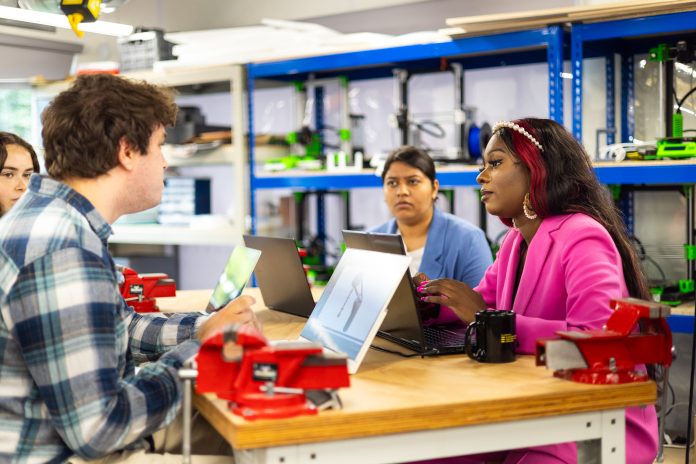By Dr John Lazar CBE FREng, below, Chair of the Enterprise Committee at the Royal Academy of Engineering
 Over the past decade, approximately 1,400 start-ups have joined the elusive “Unicorn” club, achieving a valuation of over $1 billion as a private company. The relative exclusivity of the club reflects powerfully not just on their founders themselves, but also on the universities and governments in their country of origin.
Over the past decade, approximately 1,400 start-ups have joined the elusive “Unicorn” club, achieving a valuation of over $1 billion as a private company. The relative exclusivity of the club reflects powerfully not just on their founders themselves, but also on the universities and governments in their country of origin.
It is unsurprising, therefore, that institutions and sovereignties alike are desperate to breed more of the species: recently, Cambridge University announced its aim to double its number of unicorns by 2025, and at the UK’s AI Safety Summit in November, Elon Musk discussed how to turn the UK into a ‘unicorn breeding ground’.
However, a strong and vibrant entrepreneurial ecosystem depends on diversity. From ‘Zebra’ businesses (those that are both profitable and aim to improve society) to ‘Gazelles’ (young, fast-growing companies that bring sustained growth and employment opportunities) and even ‘Mice’ (smaller firms), a whole range of business fauna co-exists across the UK’s economy and must be supported fairly if we are to create a world-leading business environment.
Silicon Valley 2.0 or a new model for innovation?
Unicorn companies are often perceived as an integral part of creating the next ‘Silicon Valley’, as Chancellor Jeremy Hunt identified earlier this year. But we shouldn’t forget that the UK tech ecosystem also has its own unique strengths that deserve to be nurtured and scaled in their own right, beyond simply replicating models from overseas. The recently released Engineering Economy and Place report from the Royal Academy of Engineering shows that beyond London, the South East and the Oxford-Cambridge arc, high concentrations of R&D activity can be found in cities from Edinburgh, Belfast, Manchester and Brighton with other hidden engineering gems located right across the UK, in places like South Derbyshire, North Warwickshire and Ribble Valley. Engineering hotspots like West Lothian, Aberdeen, and Flintshire and Wrexham provide some of the nation’s largest engineering epicentres, with high proportions of local employment in engineering and technology. By understanding, fostering and combining these unique strengths in engineering across the country, the UK could enhance local and national prosperity, build a more inclusive economy, and kick-start its own, new form of global entrepreneurial hub.
The whole ecosystem of businesses
In addition to tapping into the existing hotbed of engineering innovation spread across the UK, a broader range of business models also needs to be supported.
As a “long-term plan for innovation-led growth”, the Department of Science, Innovation and Technology’s UK Innovation Strategy highlights the importance of “the whole ecosystem of businesses”. It is essential that the government follows this ethos and recognises the risk of overlooking the needs of other fast-growing businesses, or business models that serve all communities and bring wider societal benefits. Supporting a diverse ecosystem helps to boost the UK’s appeal as an investment destination and conducive environment for business growth and fosters a broader range of innovations that can transition from the laboratory to the market more quickly.
Today’s challenges need more innovators
It’s also important to remember that the innovations that can solve some of the most pressing and complex environmental, economic and societal problems of our time won’t just come from Unicorn companies. The UK’s broader engineering and deep tech ecosystem continues to demonstrate an aptitude for developing solutions to build a more sustainable society. One example of such a business is Notpla, a Royal Academy of Engineering Enterprise Hub Member that won The Earthshot Prize in 2022 for its alternative biodegradable solution to plastic made from seaweed and plants. Focusing solely on unicorns risks encouraging investment away from such businesses, which have a vital part to play both in the entrepreneurial ecosystem, and wider sustainability goals.
Our ecosystem needs diversity to thrive
Admittedly, Unicorns shimmer with the promise of economic gain and dazzle with their mythological charm; yet, by focusing exclusively on growing these companies, we miss the bigger picture and an opportunity to realise many societal benefits that other start-ups and SMEs can bring. The whole ecosystem, comprised of many more ‘humble’ animals, must be nurtured to achieve a diverse and healthy entrepreneurial ecosystem in which new species can evolve. It is to this, that we must turn our attention.


